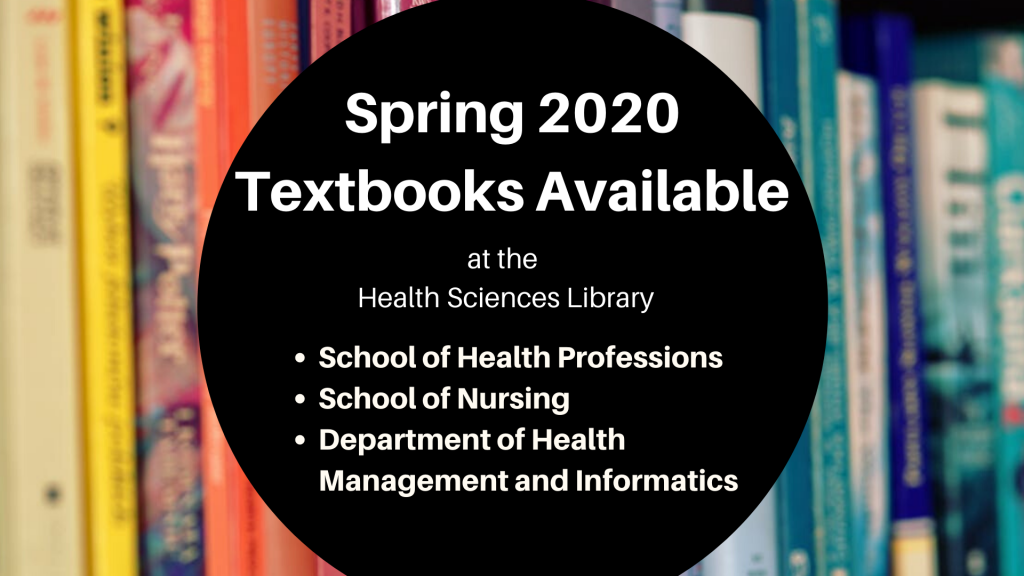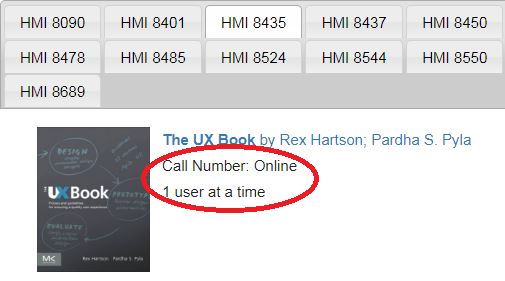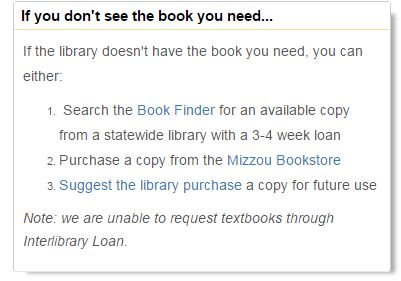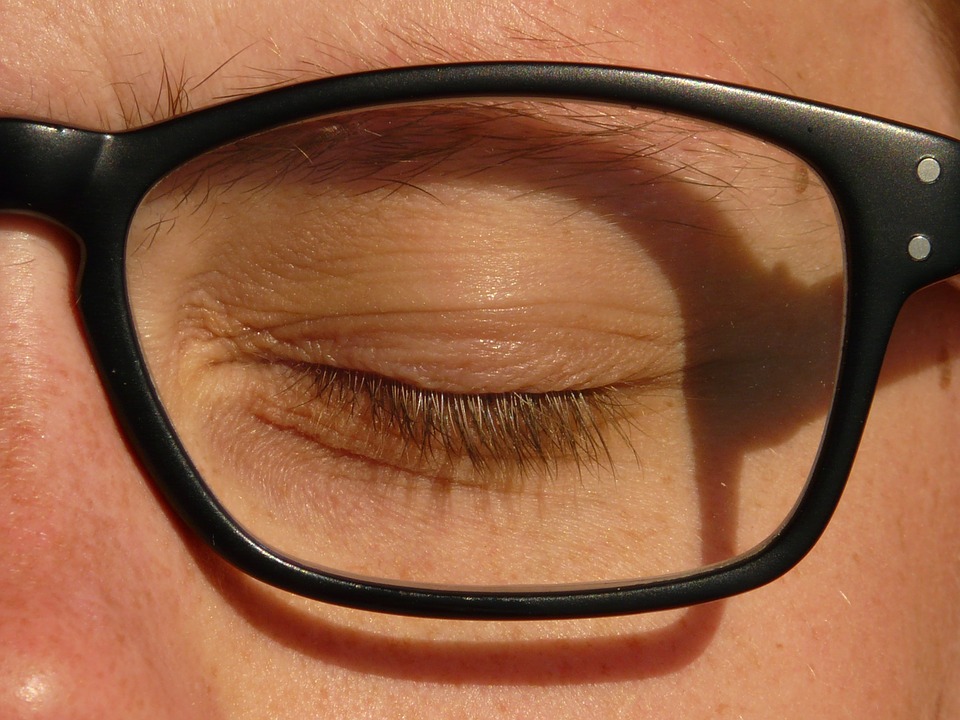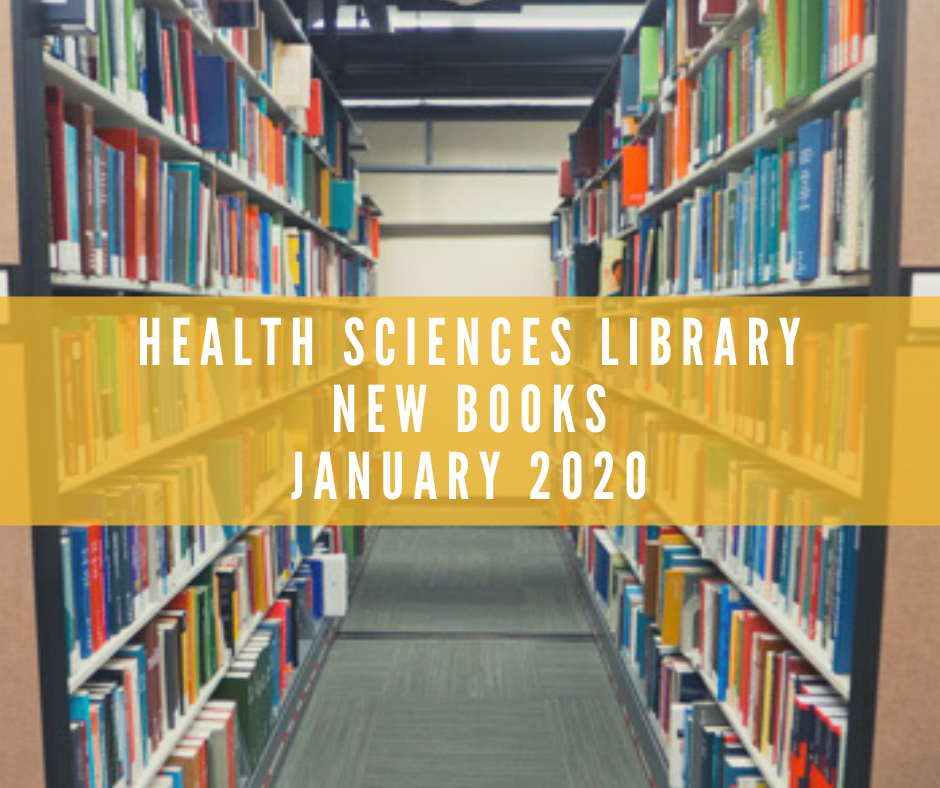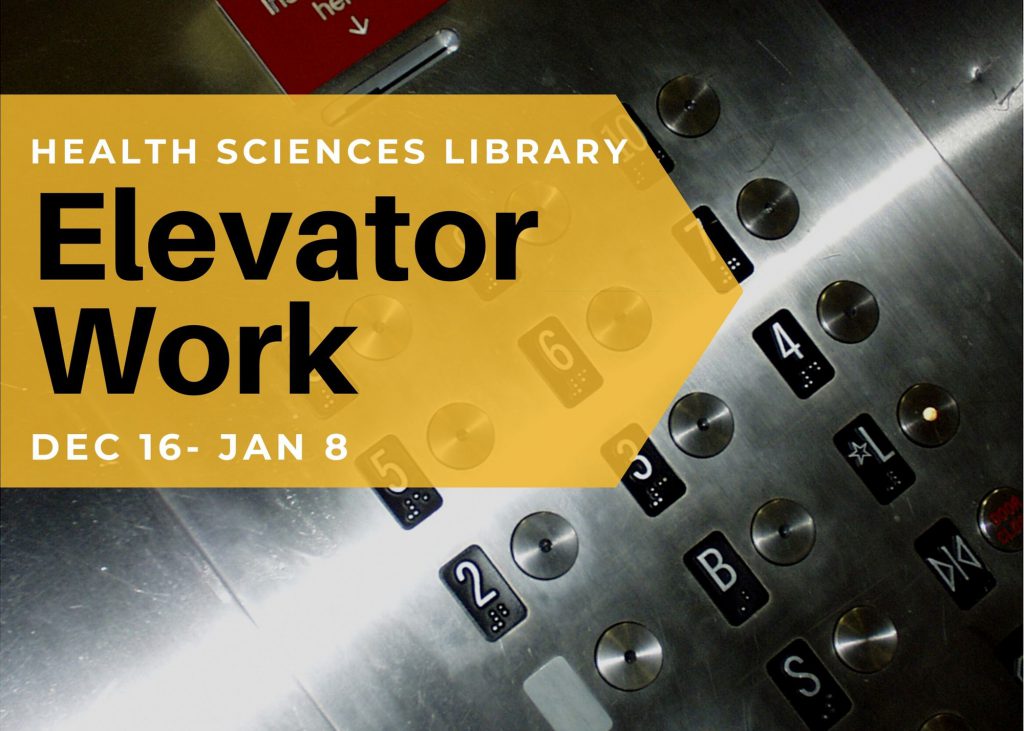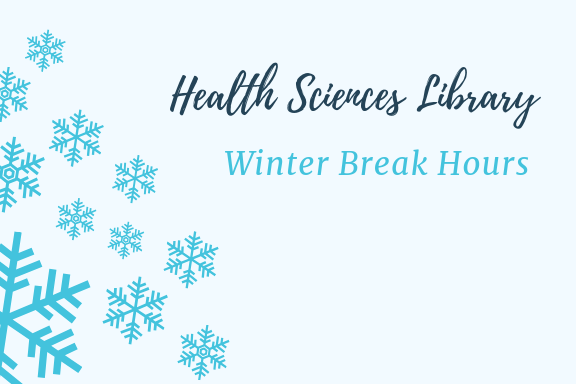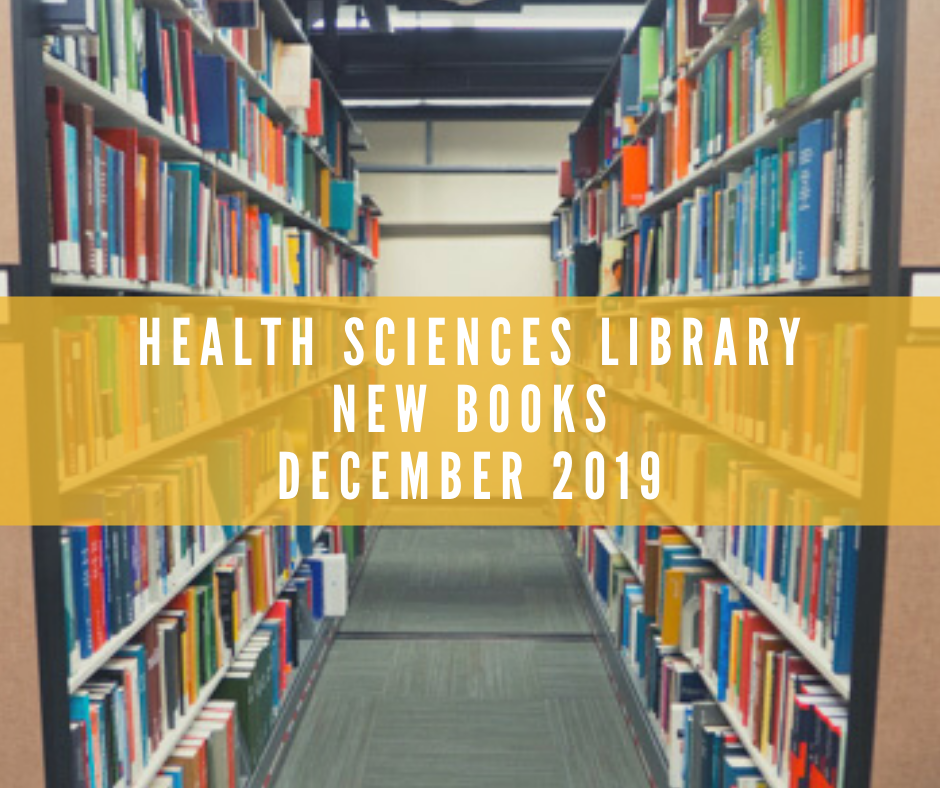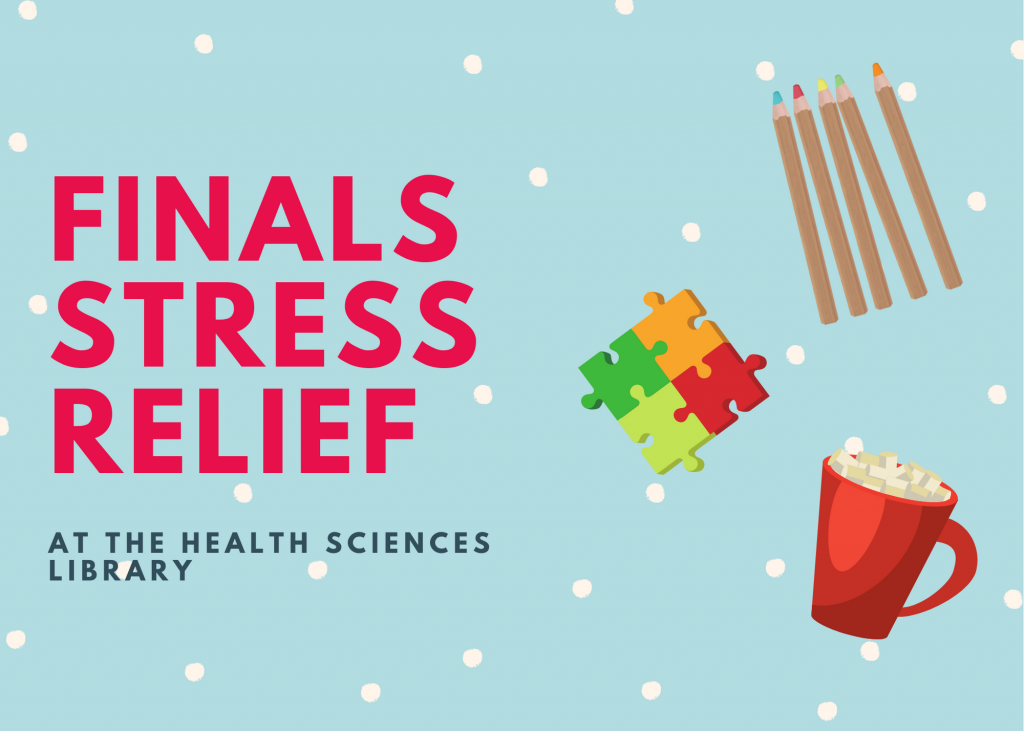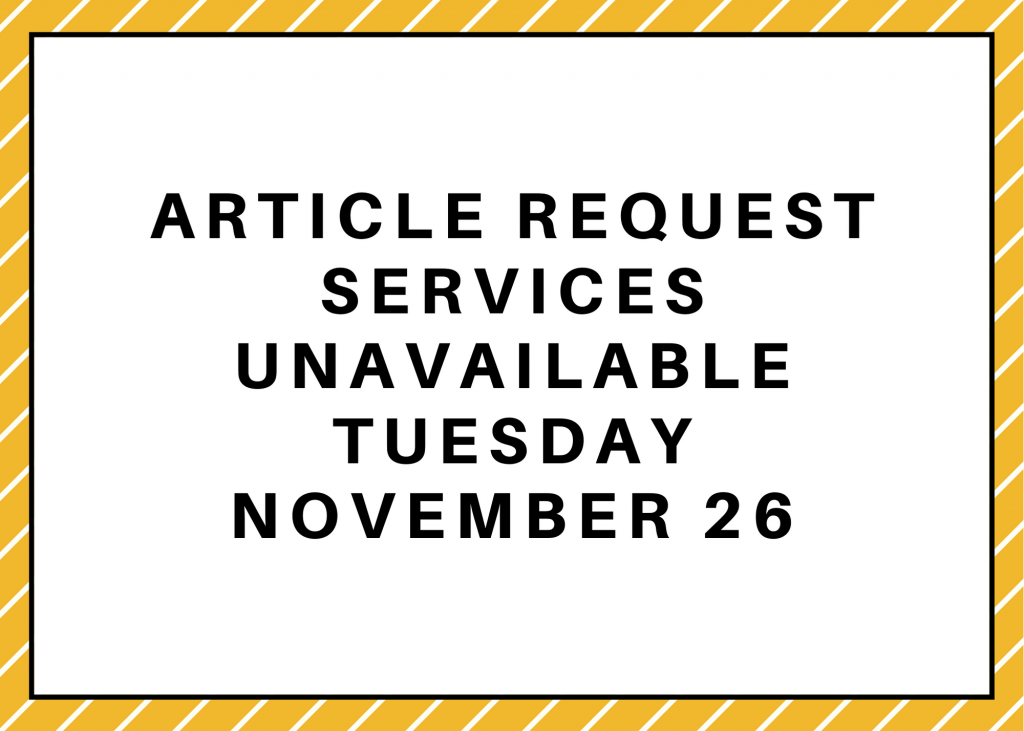Spring 2020 required and recommended textbooks for classes in the School of Nursing, School of Health Professions and the Department of Health Management and Informatics are now available at the library. Each course has its own corresponding tab.
Paper copies are available on Health Sciences Library Reserve for a 24 hour checkout time. Any duplicate copies of textbooks are available and subject to regular check out times.
Please be aware of the user limits on electronic textbooks. They are different depending on textbook and platform. We make note of any user limits.
Unfortunately, we don’t have all the books required for every class. If we don’t have your textbook, there are several avenues you can use to find a copy, which are all clearly labeled on each class page.
Textbook Guides:
- http://libraryguides.missouri.edu/SchoolofNursingTextbooks
- http://libraryguides.missouri.edu/SchoolofHealthProfessionsTextbooks
- http://libraryguides.missouri.edu/HMItextbooks
If you need help accessing any of the textbooks, email asklibrary@health.missouri.edu.
